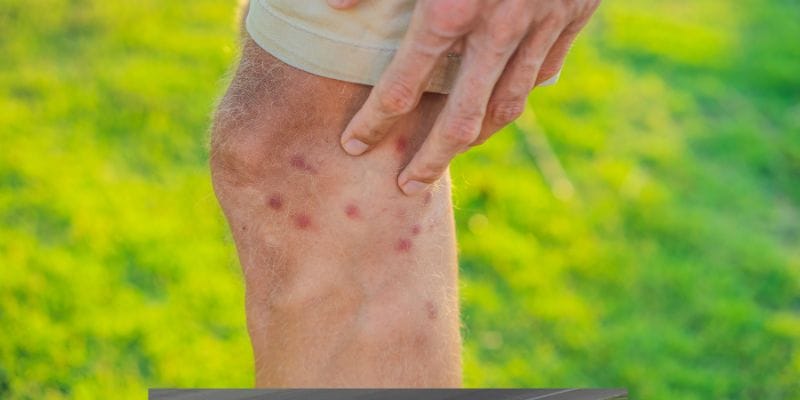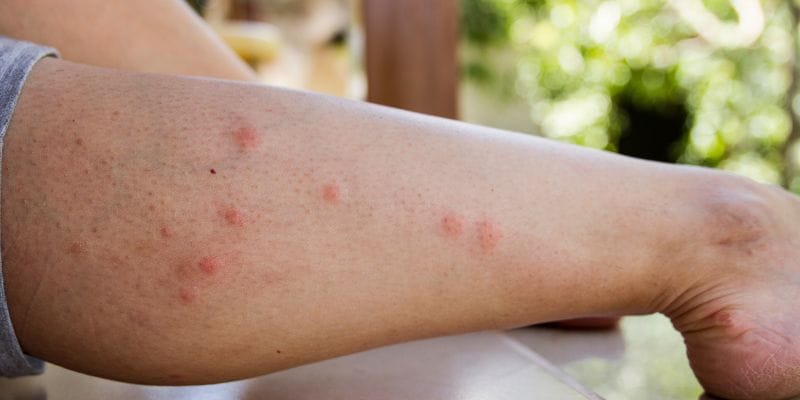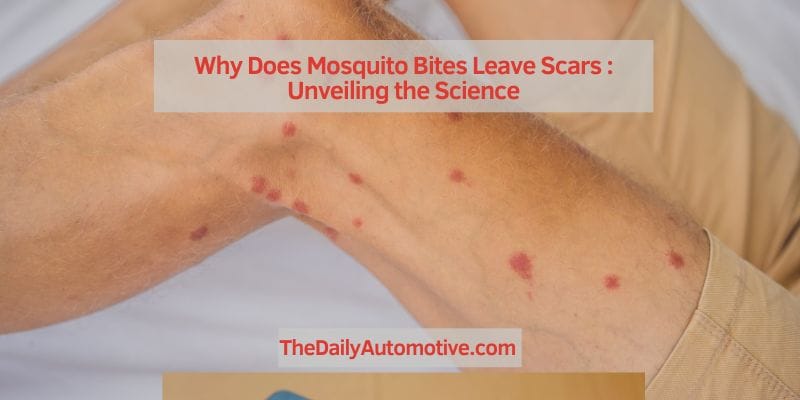Why Does Mosquito Bites Leave Scars : Unveiling the Science
Mosquito bites leave scars because the body’s immune response may create an overreaction, leading to persistent inflammation and tissue damage. The human body’s immune system treats mosquito saliva as a foreign substance, triggering an inflammatory response that can cause lingering skin discoloration and scarring.
Mosquito bites are usually harmless, but certain people may experience more severe reactions, such as large and itchy welts that can take weeks to heal. When scratching the bites, the skin can become damaged, increasing the likelihood of scarring. The repetitive nature of mosquito bites can also lead to the accumulation of scar tissue over time.
Understanding the reasons behind mosquito bite scarring can help individuals take appropriate measures to prevent and treat these skin blemishes effectively.
Understanding The Science Behind Scarring
Mosquito bites can leave scars due to the body’s healing process, which involves the production of collagen to repair the skin. The inflammatory response to the mosquito saliva may lead to overproduction of collagen, resulting in raised, darkened scars known as keloids.
Understanding this process can help in finding ways to minimize scarring.
Mosquito bites are not only annoying but can also leave behind unsightly scars. The aftermath of these bites raises the question: why do mosquito bites leave scars? Understanding the science behind scarring provides valuable insight into the physiological processes that occur in the body after a mosquito bite and sheds light on why scars may form.

The Physiology Of Mosquito Bites
Mosquitoes have specialized mouthparts designed to pierce the skin and feed on blood. When a mosquito bites, it injects saliva containing anticoagulants and proteins into the skin. The body’s immune system recognizes these foreign substances and initiates an inflammatory response to combat them. This response can lead to localized swelling, redness, and itchiness, and can vary in intensity depending on an individual’s immune reaction.
Inflammatory Response And Scar Formation
During the inflammatory response, immune cells are recruited to the site of the mosquito bite to neutralize any potential pathogens introduced by the mosquito’s saliva. In some cases, the inflammatory response may become prolonged, triggering the overproduction of connective tissue as the body attempts to repair the damaged skin. This can lead to the formation of a scar. The extent of scar formation varies from person to person and can be influenced by factors such as genetics, skin type, and the individual’s immune response.
Some individuals are more prone to scarring due to an exaggerated immune response, which can lead to excessive collagen deposition and tissue remodeling at the site of the mosquito bite. Additionally, repeated scratching of the bite area can exacerbate the inflammation and contribute to scar formation.
Understanding the science behind scarring after mosquito bites highlights the complex interplay between the immune system, inflammatory response, and tissue repair processes. By gaining insights into these mechanisms, individuals can take proactive steps to minimize scarring and promote faster healing of mosquito bites.
Factors Contributing To Scar Formation
Factors contributing to scar formation from mosquito bites can be influenced by several key elements. These factors include genetics and susceptibility, personal hygiene and wound care, as well as allergic reactions and scar intensity.
Genetics And Susceptibility
Genetics plays a significant role in how a person’s skin responds to mosquito bites. Some individuals have a genetic predisposition to heightened inflammatory reactions, resulting in more pronounced swelling, itching, and potential scarring. The level of histamine released in response to mosquito saliva can also vary based on genetics, influencing the intensity of the body’s immune response.
Personal Hygiene And Wound Care
Personal hygiene and proper wound care following mosquito bites can impact the potential for scar formation. Ensuring the bite area is kept clean and avoiding excessive scratching can help minimize the risk of developing scars. Moreover, prompt application of antiseptic creams or lotions can aid in reducing inflammation and preventing infection, contributing to better wound healing.
Allergic Reactions And Scar Intensity
In some cases, individuals may have allergic reactions to mosquito bites, leading to heightened inflammation and a more aggressive healing process that can result in more noticeable scarring. Allergic responses can exacerbate the body’s immune reaction, leading to a greater degree of tissue damage and subsequent scar formation. Understanding one’s susceptibility to allergic responses can aid in taking proactive measures to minimize the risk of intense scar formation.
Preventative Measures And Treatment
Mosquito bites, aside from being annoyingly itchy, can also leave behind unsightly scars. However, with the right preventative measures and treatment, it is possible to minimize the chances of scarring and effectively manage any scars that do occur. By taking proactive steps, you can help alleviate the after-effects of mosquito bites and promote faster healing.
Minimizing Mosquito Bites
Effective Wound Care Practices
After getting bitten, it’s essential to clean the area with mild soap and water to prevent infection. Avoid scratching the bite, as this can lead to further irritation and potential scarring. Applying over-the-counter anti-itch creams or using cold compresses can help ease discomfort and minimize swelling.

Scar Management Techniques
If scarring does occur, there are several techniques you can use to manage it effectively. Applying silicone gel or sheets to the affected area can help reduce the appearance of scars. Massaging the scar tissue gently with moisturizer can also help break up the tissue and minimize the visibility of the scar.
Debunking Common Myths
There are many misconceptions surrounding mosquito bites and the formation of scars. Understanding the truth behind these myths can help clear up the confusion and lead to better prevention and treatment.
Misconceptions About Mosquito Bites And Scarring
There are several common misconceptions about why mosquito bites leave scars. Let’s debunk some of these myths:
- Myth 1: Scratching mosquito bites can prevent scarring.
- Myth 2: Only tropical mosquito species leave scars.
- Myth 3: Mosquito bites always result in scarring.
Addressing Popular Remedies
Many people turn to various remedies to alleviate the itchiness and prevent scarring from mosquito bites. It’s important to address the effectiveness of these remedies:
- Topical creams
- All-natural remedies
- Prescription medications
Frequently Asked Questions On Why Does Mosquito Bites Leave Scars
Why Do Mosquito Bites Leave Scars?
Mosquito bites leave scars due to the body’s immune response, causing inflammation and the release of histamine. Scratching exacerbates the issue, leading to prolonged skin healing and scar formation.
How To Prevent Mosquito Bite Scars?
To prevent mosquito bite scars, avoid scratching the affected area, apply anti-itch cream, use insect repellent, wear long sleeves, and eliminate standing water in your vicinity to discourage mosquito breeding.
Are Some Individuals More Prone To Mosquito Bite Scars?
Yes, some individuals are more prone to mosquito bite scars due to their unique immune responses. Factors such as genetics, skin type, and previous reactions to mosquito bites can influence scar formation.
Conclusion
It’s clear that mosquito bites can leave scars due to excessive scratching. Understanding the causes and prevention can help in avoiding scarring. By keeping the affected area clean, using anti-itch creams, and avoiding scratching, we can minimize the chances of scarring.
Protecting ourselves from mosquitoes using insect repellents is also crucial in preventing bites and subsequent scarring.







